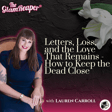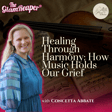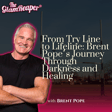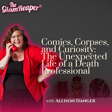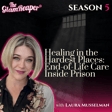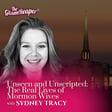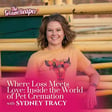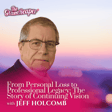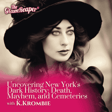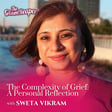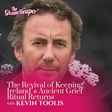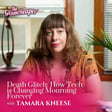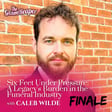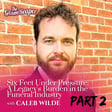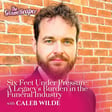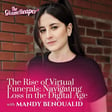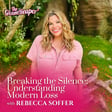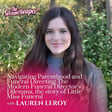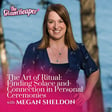
The Death Deck Chronicles: Stories of Openness, Reflection, and Growth
In this episode of The Glam Reaper Podcast, your host Jennifer engages in conversation with Lisa, co-creator of the “Death Deck.” Lisa unveils the inspiration behind her creation, the Death Deck, a tool designed to foster open conversations about the often-taboo topic of death.
Jennifer and Lisa openly discuss the challenges associated with entering the death-related industry, shedding light on the nuances and sensitivities involved.
As the episode unfolds, Jennifer delves into the significance of early exposure to death, unraveling the layers of understanding and acceptance that come with confronting mortality from a young age.
Join them as they discuss headless chickens, drowned kittens, farm living, playing cards, talking death, challenging societal norms, and embracing the profound wisdom that these conversations bring!
Key Topics:
-Journey into the Realm of Death with the Death Deck Card Game
-Approaching Change in the End-of-Life Industry with Compassion
-Understanding How the Irish View Death
-Facing Death with Open Hearts and a Touch of Humor
-Farm living = Life and Death.
Quotes From The Episode:
Is this reality that if we really contemplate the fact that we're going to die, and that our time is finite, then are we living the lives who want to be living?
- Lisa Pahl
People are not going to change overnight in terms of suddenly want to talk about death, because it's a very scary topic.
- Jennifer Muldowney
Timestamp:
[00:00] Podcast Intro
[00:54] Lisa discussed the creation of the death deck as a tool to encourage open conversations about death and end-of-life preferences
[02:11] Jennifer reflects on the misconception that Irish people are adept at discussing death
[3:37] Lisa discusses the gamification aspect of the Death deck
[05:10] Jennifer and Lisa shares insights on the challenges of entering the death-related industry
[09:11] Jennifer discusses the gradual acceptance of conversations around death
[11:29] Jennifer and Lisa discussed questions from the Death deck
[16:19] Jennifer shares memories of her grandmother's tough but pragmatic approach to life and death on the farm in Ireland
[19:12] Jennifer delves into the significance of early exposure to death
[21:52] Jennifer and Lisa discuss the concept of the Death deck as a tool to encourage people to contemplate their mortality and live more intentionally
[25:39] Outro
Connect with Lisa Pahl:
Website - https://thedeathdeck.com/pages/about-us
Instagram - https://www.instagram.com/thedeathdeck/
Linkedin - linkedin.com/in/lisa-pahl-lcsw-89669070
Connect with Jennifer/The Glam Reaper:
Facebook Page - Muldowney Memorials: https://www.facebook.com/MuldowneyMemorials/
Facebook Page - Rainbow Bridge Memorials: https://www.facebook.com/rainbowbridgememorialsdotcom
Instagram - @muldowneymemorials & @jennifermuldowney
Twitter - @TheGlamReaper<
